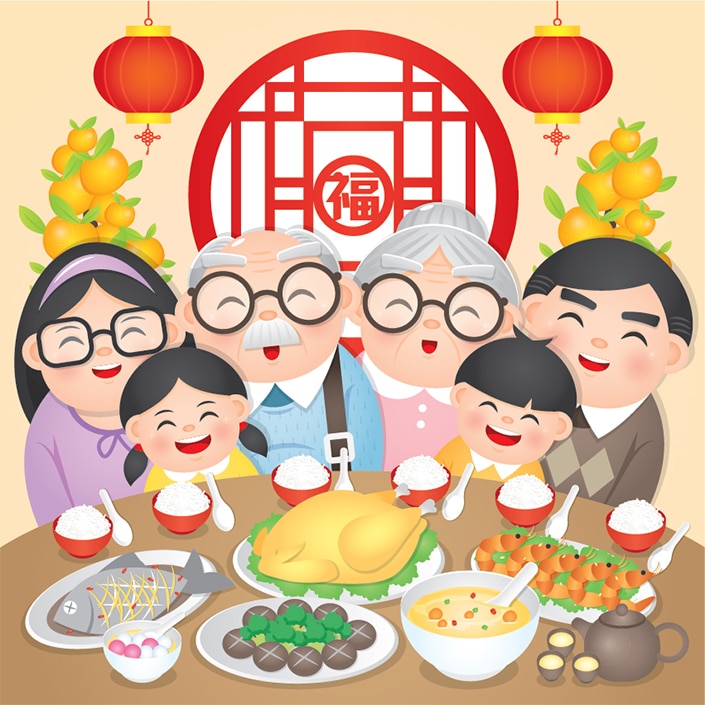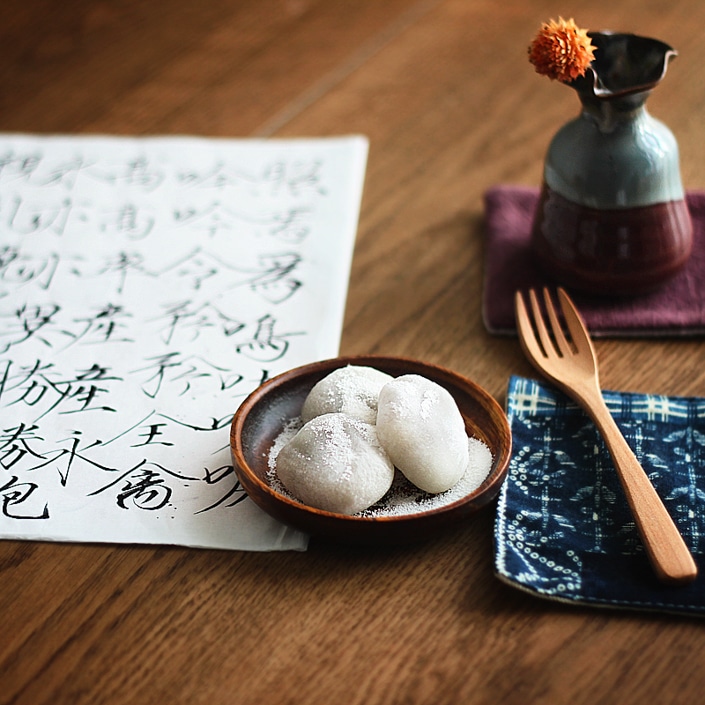The Chinese Internet Slang You Need to Know in 2025
Learn Chinese in China or on Zoom and gain fluency in Chinese!
Join CLI and learn Chinese with your personal team of Mandarin teachers online or in person at the CLI Center in Guilin, China.
It’s 2025, and the high-tech era is well underway. These days, speakers of almost every language on earth have developed their own systems of Internet shorthand that help them express thoughts and feelings efficiently. The world of Chinese Internet slang, of course, is no exception.
In order to keep your Mandarin skills fresh, it’s important to familiarize yourself with Chinese Internet slang. In this article, we’ll dive into some of 2025’s most commonly used Mandarin cyberspeak.
Table of Contents
Why learn Chinese Internet slang?
Even the most advanced language students may find themselves mystified by the quickly evolving world of Chinese Internet slang.
While you may have heard of common online terms like 666 (liùliùliù; awesome) or 88 (bābā; bye-bye), modern Chinese Internet slang also includes an extensive list of commonly used alphabetic acronyms. These acronyms are simply abbreviations based on how certain groups of Chinese characters are written in pinyin.
Although these Internet acronyms are frequently used by Chinese netizens, they aren’t well known among language students. In order to communicate effectively with Chinese people on social media, comprehend Chinese language digital media and keep your Mandarin skills up-to-date, it’s important to understand common online phrases as coined by the mainland’s Internet-savvy population.

Learning the newest Chinese Internet slang will help keep your Mandarin language skills up-to-date.
Six popular online acronyms to learn today
Ready to give your Chinese skills a modern makeover? Stay hip to the culture by mastering these six popular Chinese Internet slang acronyms today.
1. yyds (永远的神)
永远的神 (yǒngyuǎn de shén; yyds) means “eternal God” and describes an outstanding person or thing. It's similar to the saying GOAT (Greatest of All Time) in English. The phrase is often used by fans to praise their idols or simply to describe something they are fond of.
For example:
- 桂林米粉太好吃了,桂林米粉就是yyds!
- Guìlín mǐfěn tài hàochī le, Guìlín mǐfěn jiùshì yyds.
- Guilin rice noodles are delicious, they’re just yyds!
Here's another example:
- 李小龙的中国功夫太厉害了,他就是yyds!
- Lǐxiǎolóng de Zhōngguó gōngfū tài lìhài le, tā jiùshì yyds
- Bruce Li’s kung fu skills are so good, he’s such a yyds!

Yyds is the perfect phrase to describe the delicious taste of Guilin’s most famous dish: Guilin rice noodles!
2. nsdd (你说得对)
你说得对 (nǐ shuō dé duì; nsdd) means “what you said is right” and is generally used to endorse or approve of what someone has said.
For example:
- Nsdd!这样的做法是正确的。
- Nsdd! Zhèyàng de zuòfǎ shì zhèngquè de.
- Nsdd! That’s the right way to do it.
However, it can also be used to brush someone off by hastily agreeing with them if the speaker doesn’t wish to continue the conversation. For example:
- Nsdd, 都听你的。
- Nsdd, dōu tīng nǐ de.
- Nsdd, whatever you say.

Nsdd can have a positive or negative meaning depending on the context in which it is used.
3. srds (虽然但是)
虽然但是 (suīrán dànshì; srds), translates to “despite that being the case” or “nevertheless,” and is used at the beginning of a sentence to indicate a shift in the speaker’s point of view.
For example:
- Srds, 我还是不喜欢这件衣服。
- Srds, wǒ háishì bù xǐhuan zhèjiàn yīfú.
- Srds, I still don’t like this piece of clothing.
Here's another example:
- Srds, 她还是想去旅游。
- Srds, tā háishì xiǎng qù lǚyóu.
- Srds, she still wants to travel.
4. xswl (笑死我了)
“笑死我了” (xiào sǐ wǒ le; xswl) literally means “laughing to death” and is used by speakers to respond to something funny, comparable to LOL in English.
For example:
- 这张图片好搞笑, xswl!
- Zhè zhāng túpiàn hǎo gǎoxiào, xswl!
- This photo is so funny, xswl!
For another example:
- Xswl,怎么会有这么搞笑的视频?
- Xswl, zěnme huì yǒu zhème gǎoxiào de shìpín?
- Xswl, why is this video so hilarious?

Xswl is the Chinese equivalent of LOL.
5. u1s1 (有一说一)
有一说一(yǒu yī shuō yī; u1s1) is similar to “seriously” or “honestly” in English, and emphasizes that the speaker genuinely means what they are saying.
For example:
- u1s1, 这杯果汁真好喝。
- u1s1, zhèbēi guǒzhī zhēn hǎohē。
- u1s1, this juice is honestly so yummy.
Here's another example:
- u1s1,这个项目她做得还不错。
- u1s1,zhège xiàngmù tā zuòdé hái búcuò。
- u1s1, she seriously did a good job on the project.

u1s1 (有一说一) is a slang term used to emphasize that the speaker is being honest or serious about what they are saying, similar to "seriously" or "honestly" in English.
6. bdjw (不懂就问)
不懂就问 (bù dǒng jiù wèn, bdjw) is a helpful transition phrase used to introduce a question. It is similar to “just wondering” or “let me ask” in English.
For example:
- Bdjw,什么是阿基米德定律?
- Bdjw, shénme shì Ājīmǐdé dìnglǜ?
- Bdjw, what is Archimedes' law?
Here's another example:
- Bdjw,这是什么奇怪的东西?
- Bdjw, zhè shì shénme qíguài de dōngxī?
- Bdjw, what’s this weird thing?

Chinese netizens use the acronym bdjw to introduce a question they’re about to ask.
Three Chinese slang terms you need to know
In addition to pinyin-based acronyms, modern Chinese also contains a wealth of new slang terms. Unfortunately, the meanings of these terms are often unclear to those who aren’t in the know. Check out our list of three of the major Chinese slang terms that are trending right now.
1. 内卷 (nèijuǎn)
Slang Use
内卷 (nèijuǎn) has come to describe—and often express disgust about—the fiercely competitive atmosphere that pervades everything from education to the workplace.
Example
You’re sitting in a theater watching a theater performance.
Out of the blue, the guy in front of you stands up.
Now, you’re no longer watching trained actors charismatically performing on stage. Instead, you’re gazing into the leering eyes of the Nirvana smiley face on the back of this guy’s t-shirt. With an eye roll and a sigh of frustration, you rise to your feet.
You hear a grunt of disgust as the person behind you now also shuffles to a standing position. You peer into the darkness around you.
The consequences are cascading, as is the disgruntlement. One by one, each audience member is forced up so as to see over the person in front of them. Within one minute, everybody’s standing, less comfortable, and a bit agitated.
Everybody is competing for a good view, yet everyone is worse off!
Additional Insight
内卷 (nèijuǎn) originated as a technical term in anthropology to describe “diminishing returns.” It described a situation in which an increase in population was not accompanied by an increase in innovation or productivity.
The term recently leapt out of the ivory tower and into every corner of Chinese Internet culture. These days, 内卷 (nèijuǎn) has come to describe (and often express disgust about) the fiercely competitive atmosphere that pervades everything from education to the workplace.
The term 内卷 (nèijuǎn) has come to be a rallying cry for China’s beleaguered millennials, many of whom are sick, tired, and burnt out from quite literally working or studying from 9 in the morning until 9 at night, 6 days a week. This is known as China’s infamous "996 work culture."
Using the term 内卷 (nèijuǎn) is about more than just wringing one’s hands at the state of society, however. Instead, the conversation around 内卷 (nèijuǎn) is making a subtler point by highlighting the fact that the cutthroat competition that 内卷 (nèijuǎn) describes is both brutal and senseless.
In the opinion of many of the Chinese netizens who have latched onto this term and contributed to its soaring popularity, the mounting competitiveness of the last decade hasn’t led to the miraculous gains in economic efficiency seen in the 80’s and 90’s. It also hasn't contributed to higher levels of literacy among middle schoolers.
Instead, everybody is just stressed out and their legs hurt from standing in the movie theater for no reason.

The term 内卷 (nèijuǎn) is used to criticize the pointless nature of China's rat race.
Dictionary definition
Involution; curling inwards. Contemporary usage originating in the academic work of anthropologist Clifford Geertz: “Agricultural Involution: The Processes of Ecological Change in Indonesia"
Modern-use English equivalent
The grind; the rat race; dog eat dog world; survival-of-the-fittest
2. 躺平 (tǎng píng)
Slang Use
What do you do after peering through the looking glass and recognizing the true nature of China’s 内卷 (nèijuǎn) rat race?
Quit spinning that hamster wheel.
Quit running altogether.
In short, 躺平 (tǎng píng): just lie down flat.
Yup, lie down flat on the ground and 休息一下 (xiūxí yīxià; take a rest). Take it easy, take a nap, take a break, take a day off from work, or, better yet, take two. I mean, why are you number crunching for that Black Mirror tech company anyway? Didn’t your buddy say that the teahouse in the park by his house was hiring a manager?
Picture it: bamboo chairs, old folks playing Chinese chess, songbirds flitting through the trees, steaming cups of tea… doesn’t that sound nice? Sure, the pay won’t be a quarter as good, but money can’t buy happiness. We’re talking about quality of life here. This is the spirit of 躺平 (tǎng píng).

Tang ping (躺平 tǎng píng) is a lifestyle and social protest movement in China that emerged around April 2021. It is a response to and rejection of societal pressures to overwork (for example, rejection of the so-called 996 system).
Additional insight
The current popularity of “lying flat” is connected with and in some ways a response to the problem of 内卷 (nèijuǎn). However, not everybody is a fan of this newfangled notion.
躺平 (tǎng píng) has attracted the ire of both older generations (“Avocado-on-rice eating millennials! When I was your age there wasn't even such a thing as a midday lunch break!”) and government officials (“The motherland is not developed enough to have the youth checking out of the workforce. Pull up your socks and fill out those Excel sheets!”).
While the 躺平 (tǎng píng) lifestyle is not for everyone, so long as China’s rat race continues to heat up, the 躺平 (tǎng píng) option seems destined to continue to be seen as an attractive option by many.
Dictionary definition
“Lying flat;” taking it easy.
Modern-use English equivalent
While there’s no direct equivalent, “quitting the rat race” comes close.
3. 破防了 (pò fáng le)
Slang Use
Today, 破防了 (pò fáng le) expresses being emotional overwhelmed. It is often used in social media comments under moving, heartbreaking, inspiring, or otherwise compelling articles, images and videos.
Additional insight
Emerging originally from the world of gamers, the phrase 破防了(pò fáng le) was initially used in the context of one’s virtual city being overwhelmed by the invading forces of the enemy:
“Bro! The defenses are down! They’re coming in! 破防了 (Pò fáng le)!破防了 (Pò fáng le)!”
In other words, “Our defenses have been breached! We’re compromised!”
As often happens, the Internet snatched this phrase, retained some limited, context-specific aspects of its original meaning, and inflated it.
It is no longer your in-game city walls that have been overrun, but rather your psychological defenses.
Indeed, this phrase is so popular that the major Chinese video streaming site Bilibili selected 破防了 (pò fáng le) as their “comment of the year.”

Netizens use the term 破防了 (Pò fáng le) to describe an intense emotional reaction.
Dictionary definition
The defenses are down; the enemy has broken through
Modern-use English equivalent
"This is too much"; "I just can't!"
4. 画饼(huàbǐng)
Slang Use
Did your boss promise you a major promotion right after you heard the company was headed for bankruptcy? Or maybe your manager offered you an unreasonably high Chinese New Year bonus if you’d start coming to the office on weekends?
In such scenarios, your work superiors are likely making a 画饼 (huàbǐng), or empty promise. This slang term is commonly used to describe a false guarantee so unrealistic and ridiculous that both sides know it will never come to fruition.
Additional insight
画饼 (huàbǐng) is derived from the Chinese idiom “画饼充饥 (huà bǐng chōng jī)” which translates directly as “to draw a picture of a cake in order to satisfy hunger.”
Sources suggest that this idiom originated during China’s Three Kingdoms period to describe government officials who relied on their misleading reputations when up for promotion.
As the story goes, in considering how to ensure that only truly competent government employees would be allowed to advance in their positions, the Head of State announced they would no longer consider a candidate's reputation, but instead look carefully at his actual track record.
“名声就像在地上画个饼一样,其实是不能吃的啊!” proclaimed the Head of State, or “Reputation is like drawing a pie on the ground; as a matter of fact, you can't eat it!”
Today, 画饼 (huàbǐng) is commonly used to describe when one party paints a falsely rosy picture in order to lure or convince others, particularly in the workplace.
For example, a boss might 画饼 (huàbǐng) by guaranteeing bonuses or promotions to motivate employees, without ever delivering on these promises.

画饼 (huàbǐng) refers to an empty promise or false guarantee, typically made to entice or motivate others despite both parties knowing it will never be fulfilled.
Dictionary definition
To draw a cake; to make a false promise
Modern-use English equivalent
"To promise the moon"; "To paint a rosy picture"
5. 偷感(tōugǎn)
Slang Use
Ever had a plan to do something extraordinary, such as apply for your dream job in a new industry or get a perfect score on the HSK? While some people share their plans for greatness with those around them, others prefer to keep quiet until they’ve achieved success.
偷感 (tōugǎn) describes the intent to be both secretive and low-key, careful not to reveal one’s actions or goals to others.
Additional insight
Gaining recent popularity on social media, 偷感 translates literally as “feeling like a thief,” and describes a fear of being caught in an act, whether that act be positive or negative.
Due to the complexities of our modern world, many young people face social pressures, and fear being misunderstood or critiqued by others. By behaving in secret, or with 偷感, self-conscious individuals feel more confident and secure knowing that they won’t be judged.
This slang term is often used as part of the phrase “偷感很重,” meaning "a strong sense of being caught." For example, if you mention to a friend “我的偷感很重,” you’re claiming that you are someone who prefers not to let other know what you’re up to, such as trying losing weight or applying for grad school – you might even avoid taking selfies in crowded places to avoid others' prying eyes!

偷感 (tōugǎn)refers to the intentional act of being secretive and low-key about one's actions or goals to avoid judgment or criticism from others—essential Internet slang for 2025.
Dictionary definition
Sense of being caught; feeling like a thief
Modern-use English equivalent
"Feeling out of place"; “Drawing attention to oneself;” "Desire to be low-key"
Keepin’ it fresh
Congrats! You’re officially up to speed on some of 2025’s hottest Chinese Internet slang.
To utilize your new net-friendly vocabulary, try engaging with Chinese people online by dropping a comment on a Chinese video or typing out one of these phrases during a WeChat conversation — native speakers will be amazed by your authenticity and cultural awareness.
Remember, if you’re looking for more opportunities to test out your language skills, learning Chinese in China is the premier path to fluency. If you can’t travel to China right now, CLI’s online lessons provide an ideal way to build and refine your Mandarin abilities from the comfort of your own home. You might even consider studying abroad in China!
Whatever you do, make sure to keep incorporating some fun and fresh lingo into your study routine—you’ll become a Chinese language “yyds” before you know it!

Learning Chinese Internet slang is a great way to connect with members of China’s younger generation on their own terms.
Internet slang vocabulary
| Hànzì | Pīnyīn | Definition |
|---|---|---|
| 永远的神 | yǒngyuǎn de shén | yyds; eternal god |
| 你说得对 | nǐ shuō dé duì | nsdd; you're right |
| 真情实感 | zhēnqíng shígǎn | zqsg; heartfelt and emotional |
| 笑死我了 | xiào sǐ wǒ le | xswl; hilarious |
| 漂亮哥哥 | piàoliang gēgē | plgg; a pretty boy |
| 漂亮姐姐 | piàoliang jiějiě | pljj; a pretty girl |
| 不懂就问 | bù dǒng jiù wèn | bdjw; just asking |
| 网络 | wǎngluò | internet |
| 俚语 | lǐyǔ | slang |
| 网络用语 | wǎngluò yòngyǔ | Internet slang |
| 流行词 | liúxíng cí | popular phrases |
| 上网 | shàngwǎng | to surf the web |
| 直播 | zhíbō | live broadcast |
| 网友 | wǎngyǒu | internet user |
| 热搜 | rèsōu | popular search term |
| 评论 | pínglùn | to comment on a post |
| 点赞 | diǎnzàn | to "like" a post |
| 网红 | wǎnghóng | internet celebrity |
| 热帖 | rètiē | popular discussion thread |
| 网传 | wǎngchuán | to circulate online |

Anias has lived, studied and worked in China and Taiwan for over 7 years. During this time, she has developed an expertise in Chinese culture and contemporary Chinese society. Anias holds a BA in East Asian Studies and Chinese Language from Bard College. She currently lives in Taiwan and is fluent in Chinese.















